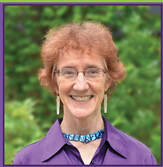Patricia (Patty) Nolan2023 Candidate for Cambridge City Council
|
1. Experience with Cambridge nonprofits. Do you have work or volunteer experience with Cambridge nonprofits?
Yes. Over the years, I have been a board member of several non profits in Cambridge - Cambridge School Volunteers, Children’s Village, Cambridge United for Education, Green Decade Cambridge, Green Streets INitiative. (and other non Cambridge ones like ArtsForKIdsFoundation, Yale SOM alumni Assn, and others). I have volunteered with many additional non profits including Mothers Out Front, HEET, and numerous times helping with events like Many Helping Hands.
2. Valuing nonprofit expertise. Cambridge nonprofits deliver programs and services across a wide range of missions, from early education and youth development, to affordable housing production and management, arts and culture exposure and education, food security, environmental preservation, civic engagement (or community involvement), and much more. As a result, nonprofit leaders and staff are often well positioned to advise the City on program policies related to their clients and consumers. Will you use your position on the City Council to ensure that the City incorporates the voice and expertise of nonprofit leaders into planning around current City priorities?
Yes. I recognize the value of non profit work through personal experience and working closely on issues and seeing how critical people in the non profit sector are to addressing issues. I worked for several non profits, including ICA - on worker ownership and community enterprises as a strategy to address income equality and economic mobility, LISC - on economic development for Greater Boston area Community Development Corporation. I founded a small business in the 1990s - a telecom reseller - to focus on providing non profits with savings in order to devote more resources to other areas. And through this professional experience along with board and volunteer experience, I know firsthand that the deep expertise of nonprofits is an asset and a strength - and the city should use it more. When I host committee hearings, I reach out to non profits working on the issue so their input can be included and we can all better understand their perspective and/or so their voices can be heard. I always seek to include in policy orders a requirement to include neighborhood voices and relevant community organizations, which for me included non profits. We should ensure that every board, commission, task force and committee setup by the city has representation from the nonprofits in the city - those most allied with or knowledgeable about about the topic.
3. Limiting application of Anti-Aid Amendment. With the exception of contracts for services, the Anti-Aid Amendment of the MA Constitution prohibits municipalities from directly distributing funds raised through taxation to nonprofits. While the City provides financial support to nonprofits through contracting, this approach increased administrative burdens, can cause cash-flow issues due to payment delays, and limits creativity in developing new funding opportunities. It also can create an incentive for the City to start new initiatives rather than invest in programs already well established in the community. Will you use your position on the City Council to limit the application of the Anti-Aid Amendment to tax generated revenue only, in order to maximize the resources available to Cambridge nonprofits?
Yes. I am so frustrated by this lack of creativity in figuring out how to help non-profits (and residents) without violating the Anti=Aid Amendment. I understand the reason - and yet I also know that the corruption and cronyism that used to prevail is (for the most part) gone. The Anti-Aid excuse has been frustrating - the narrow interpretation of the prohibition has prevented Cambridge from doing all it can to get resources to people in need. I am glad the current City Manager has brought in a team of people who are changing the culture of the city, and have been empowered to explore different ways of doing the work of the city. One of these areas is how to use our resources directly to non profits and residents legally. I will continue to promote this idea and work to do all we can. We need to be able to pay residents directly - whether for emergency needs such as rent and food, or for policy initiatives like decarbonization and electrification, - we should be able to support our residents. And we can do a lot to make the contracting process more user friendly, without compromising the necessary and appropriate controls.
4. Attending to nonprofit workforce challenges. According to CNC's December 2022 survey of Cambridge nonprofits, (70%) reported open positions and over a third (36%) said they lacked the funding to fill them, comprising their ability to meet service demands. Do you believe the City Council can play a role in helping nonprofits recruit and retain high quality staff?
Yes. The city can do more to spread the word about openings. Also, we need to look at our living wage - and if it needs to be raised, we should do that. And then non profits may need financial support to raise wages enough to get great applicants. We can also provide training - and support organizations like the Non Profit Coalition and CCF which work to support and empower and provide training to a huge array of non profits in the city.
5. ARPA investments in nonprofits. While Cambridge nonprofits are grateful for the City committing millions of ARPA dollars to local organizations, concerns have been raised both about the slow pace of releasing funds into the community and a lack of information being shared broadly regarding their progress. Will you use your position on the City Council to expedite this process and ensure there is greater transparency going forward?
Yes. As co-Chair of the Finance Committee, I worked hard to have community and council input into ARPA allocations, and to make ARPA allocations be transparent. And open to all types of organizations l in the city. Which is why we had the amount of transparency we did - and yet the black box after that allocation was not something the council constructed or controlled. To push for faster disbursement, I have continued to nag, and nudge and follow up with city staff. The delay in getting ARPA funds out the door is completely unacceptable. So many ARPA recipients have yet to receive funds - almost two years after this process started. Some have had to re-write their narrative due to the delay - which was not their fault. In addition to the delay, the lack of communication on where things stand, the timing, and other important aspects of the plan has been stressful. And evidence that the city culture change can’t come soon enough.

